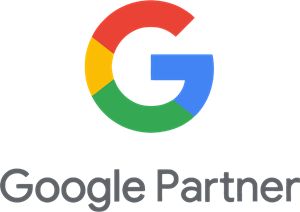Should Your Brand Use an AI Content Creator?
March 8, 2023
The popularity of AI-driven marketing platforms, made most famous by the global adoption of ChatGPT this past year, has put artificial intelligence back in the headlines like never before as a relevant (and unavoidable) resource for brands of all sizes. Could an AI content creator be the answer for your business?
What is an AI Content Creator?
For those not yet versed in AI and how it’s shifted how marketers approach and execute their work, let’s start with the basics. An AI content creator is an automated and artificial (read: non-human) generator of copy, creative, audio, imagery and more, that a brand can leverage in an effort to execute its content strategy quickly, inexpensively, efficiently—and, if prompted correctly (for now)—surprisingly successfully. Where traditionally automated content has been synonymous with clunky text, lazy aggregation and an almost mechanical touch, today’s ChatGPT and so many other resources have shown the world, that’s truly a thing of the past. The idea of immediate and high-quality content has brands and marketers dreaming of new possibilities.
Wait, This is Actually A Thing?
Yes. In fact, AI content generation is something most major brands, freelancers and agencies are already exploring, if not utilizing to their advantage.
According to SEMRush, 12 percent of businesses are currently using AI to create content. What’s more, a 2022 Capterra study of AI-based marketing found that 82 percent of businesses feel that AI-generated content is just as good, if not better than what’s produced by humans. Given that nearly half of all marketing professionals spend half their time creating marketing content, that’s a massive time-saving.
These numbers are quite staggering, and they reflect a positive sentiment about an AI industry that’s in its relative infancy as it relates to creating marketing content. In time, as AI becomes even more powerful, it’s not hard to envision a world in which AI becomes the standard. Which, depending on how you look at it, could be a good thing or a bad thing.
What’s the Catch?
So far, we’ve discussed the positive aspects of AI content creators. We know they’re capable of quickly producing content, and we know that a lot of people are happy with the results. But what are the downsides to using AI?
There are three major factors that detract from implementing an AI content creator. These range from mildly inconvenient to potential outright deal-breakers.
First, there’s the time spent getting AI up and running, and also the time investment in training staff. Returning to the 2022 Capterra AI study, two-thirds of respondents stated that it took at least six months for AI to be fully integrated and implemented within their businesses, with nearly a quarter stating it took one to two years to be fully set up.
On top of that, staff must be trained in the new software, and that takes time. Thankfully, this doesn’t take quite as long as the initial setup, with the majority of people being up to speed in less than six months. So it takes a while, but in the end, it could be worthwhile.
That brings us to our second argument against AI. Because a company is now turning over content creation to a bot, the bot is then responsible for what happens next. This means that any unique insights you’ve made regarding your customer base might be lost in translation.
Yes, an AI content creator will base its content around what’s already been produced. But if you want that personal touch that only you can provide—not to mention the data that shows exactly what your audience wants—AI might potentially disregard those figures in the name of producing what it thinks is right. Of course, the only thing that’s right for your audience is what gets them to engage with your brand, and that might not necessarily align with the AI bot’s insights.
The last point is one that’s going to be a potential point of reckoning for any business that uses AI, and even for those that don’t. We know that AI is based on learning the style of existing content and incorporating that into its output. That leads to two potential issues for businesses of all types.
First, it’s possible for a competing business to train its AI content creator to learn your company’s content style and create something similar for that business. Second, and more importantly, there’s a whole lot of legal gray area here. Can an AI bot be trained on copyrighted material? Can it use that copyrighted material as the basis for original content? Do you own the copyright on content that’s created by the AI content generator?
While the answer to the last point is that technically you do, the basis of that content leads to more questions than answers. And so, with so many potential issues down the road, it’s fair to wonder if all of this is worth it right now.
Using AI as an Assisting Tool
While there are definitely issues with AI as the sole content generator for a business, the upside to AI can’t be ignored. Therefore, is it possible for a company to have the best of both worlds? And the answer to that is yes.
No, you should not just blindly publish AI content without any regard for legalities or potentially stealing copyrighted material. But you can definitely use AI internally as a way to explore concepts and generate some new ideas.
Here’s an example. Suppose you’re working on an email drip campaign, and each different segment of your customer base gets a similar, yet slightly different email. After writing a few of these, it’s hard to feel like you’re doing as well as you could possibly be doing. Everything sounds the same and nothing makes sense. This is where an AI bot might point you in a different direction so you don’t constantly repeat yourself. You don’t copy what the bot suggests word for word, of course, but that little burst of creativity you can’t give yourself might just get you out of that rut and back to producing great content.
This might be the best use of AI as it currently exists — something that’s used alongside your current content creation process to come up with fresh material. This introduces your company to the concept of AI while still using your manual process to do most of the heavy lifting. As AI evolves and legal matters become cleared up, it’ll be easier to incorporate AI as a larger part of your content creation strategy. Until then, though, it’s best to keep AI somewhat on the periphery, more as a tool for creativity than as an outright producer of content.
As we’ve seen with ChatGPT, an AI-based future is not a question of whether to use or avoid—it’s a question of how to use whether you like it or not. To learn more about AI and how it can influence content creation, contact us at Commit Agency today.




























